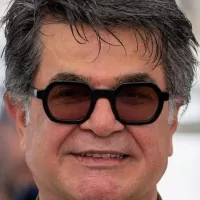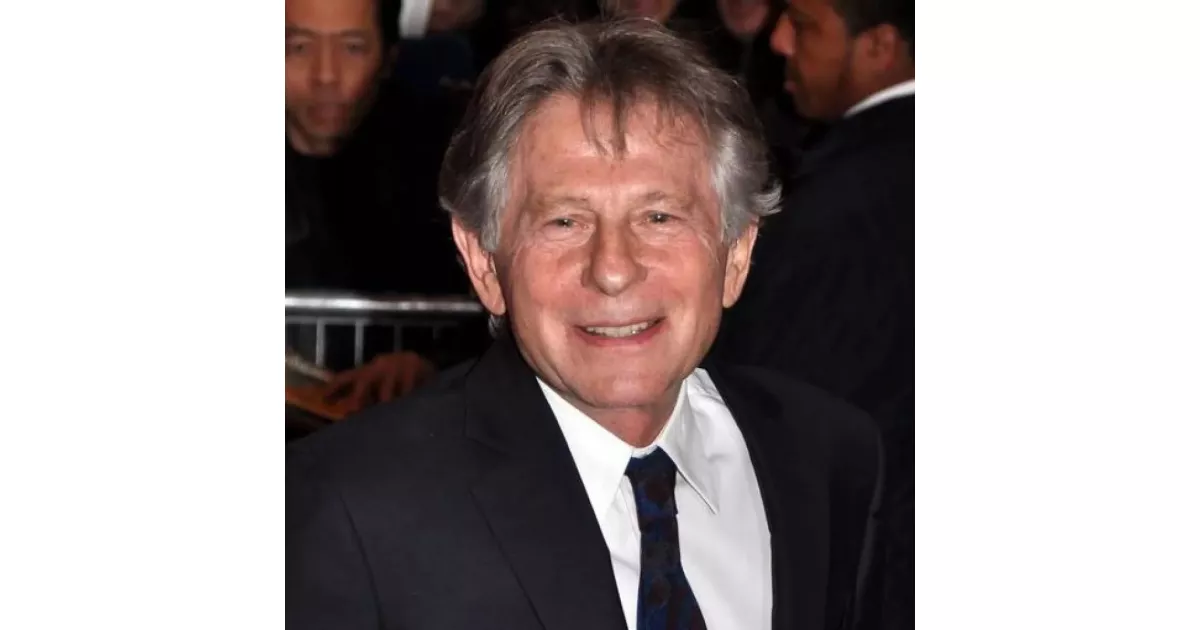Roman Polanski is a French-Polish film director known for his acclaimed work, receiving an Academy Award, BAFTAs, César Awards, Golden Globe Awards, a Golden Bear, and a Palme d'Or. However, his career is also marked by his conviction for sex offenses.
1906: Setting of "An Officer and a Spy"
"An Officer and a Spy" centers around the Dreyfus affair, a miscarriage of justice that took place in France between 1896 and 1906.
August 1933: Roman Polanski's Birth and Family Background
Roman Polanski was born in August 1933 in Paris to a Jewish father and a mother raised Catholic. His parents were both agnostic.
August 1933: Birth of Roman Polanski
Roman Polanski, renowned film director, was born in Paris in August 1933.
1937: Move to Kraków and Beginning of World War II
In early 1937, the Polanski family relocated back to Kraków. The outbreak of World War II soon followed.
1937: Return to Kraków and the Outbreak of World War II
Polanski's family moved back to Kraków, his father's hometown, in 1937. Shortly after, World War II broke out.
1943: Escape from the Kraków Ghetto
In 1943, Polanski managed to escape the Kraków Ghetto and survived with the help of Polish Catholics who risked their lives to protect him.
December 1946: Polanski's Father's Remarriage
Polanski's father remarried Wanda Zajączkowska on December 21, 1946, a relationship Polanski reportedly found difficult.
1947: Cinematic Inspiration: Odd Man Out
Polanski cited Carol Reed's 1947 film, Odd Man Out, as a significant influence on his decision to pursue a career in filmmaking.
1954: Acting Debut in Polish Cinema
Roman Polanski began his acting career in 1954, appearing in Andrzej Wajda's "Pokolenie" ("A Generation") and Silik Sternfeld's "Zaczarowany rower" ("Enchanted Bicycle" or "Magical Bicycle").
1955: Directorial Debut with "Rower" ("Bicycle")
In 1955, Polanski made his directorial debut with the short film "Rower" ("Bicycle"), a semi-autobiographical work believed to be lost. The film, starring Polanski, drew inspiration from a real-life incident where he was violently assaulted during a bicycle purchase.
1958: Recognition for Short Film "Two Men and a Wardrobe"
Polanski gained considerable recognition for his short film "Two Men and a Wardrobe", released in 1958 while he was still a student at the National Film School in Łódź.
1959: Graduation from Film School and Acclaim for "When Angels Fall"
Polanski graduated from the National Film School in Łódź in 1959. That same year, his short film "When Angels Fall" garnered significant acclaim, further solidifying his burgeoning reputation as a filmmaker.
1959: Marriage to Barbara Kwiatkowska-Lass
Roman Polanski married actress Barbara Kwiatkowska-Lass in 1959. She later starred in his short film "When Angels Fall."
1961: Short Films in France: "The Fat and the Lean" and "Mammals"
Polanski directed two notable short films in France in 1961: "The Fat and the Lean" and "Mammals." These films marked his foray into French filmmaking.
1961: Separation from Barbara Kwiatkowska-Lass
Roman Polanski and Barbara Kwiatkowska-Lass separated in 1961, subsequently divorcing the following year.
1962: Release of "Knife in the Water"
Polanski released his debut feature film, "Knife in the Water," in 1962. The film, a psychological thriller about a couple and a hitchhiker on a boat trip, achieved both commercial success and critical acclaim in the West.
1962: Academy Award Nomination for Knife in the Water
Polanski's debut feature film, Knife in the Water, released in 1962, earned him an Academy Award nomination for Best Foreign Language Film.
1962: Collaboration with Jerzy Skolimowski
Roman Polanski co-wrote the screenplay for "The Palace" with Jerzy Skolimowski, marking their second collaboration since Polanski's first feature film, "Knife in the Water," released in 1962.
1963: Academy Award Nomination for "Knife in the Water"
"Knife in the Water" earned Polanski his first Academy Award nomination in 1963, in the Best Foreign Language Film category. This nomination further solidified his international recognition as a rising filmmaker.
1964: Contribution to Omnibus Film "The Beautiful Swindlers"
In 1964, Polanski contributed a segment titled "La rivière de diamants" to the French omnibus film "Les plus belles escroqueries du monde" ("The Beautiful Swindlers"). However, he later distanced himself from the film and requested the removal of his segment.
1965: Release of Repulsion
Polanski directed his first English-language film, Repulsion, which was released in 1965.
1965: Release of Psychological Horror Film "Repulsion"
Polanski released "Repulsion" in 1965, a psychological horror film starring Catherine Deneuve. This marked the first of three English-language films he directed based on scripts co-written with Gérard Brach.
1966: Release of Cul-de-sac
Polanski directed Cul-de-sac, released in 1966.
1967: Release of The Fearless Vampire Killers
In 1967, Polanski directed The Fearless Vampire Killers.
1967: Release of "The Fearless Vampire Killers/Dance of the Vampires"
Polanski released "The Fearless Vampire Killers" (known as "Dance of the Vampires" outside the US) in 1967. This horror-comedy, a parody of vampire films, marked Polanski's first use of color and Panavision lenses.
January 1968: Marriage to Sharon Tate
Roman Polanski began dating actress Sharon Tate during the filming of "The Fearless Vampire Killers." The couple married in London in January 1968.
January 1968: Marriage to Sharon Tate and Insights into Audience Expectations
Roman Polanski married actress Sharon Tate in London in January 1968. During this time, Polanski, with Tate by his side during a documentary filming, shared his observations about the evolving demands of young moviegoers, who he believed sought fresh and innovative cinematic experiences.
1968: Release of "Rosemary's Baby"
Polanski directed "Rosemary's Baby" in 1968, his first Hollywood production. This horror film, based on Ira Levin's novel, was a critical and commercial success, establishing Polanski as a major filmmaker in Hollywood and earning him his second Academy Award nomination for Best Adapted Screenplay.
February 1969: Move to Cielo Drive
In February 1969, Roman Polanski and Sharon Tate became tenants at 10050 Cielo Drive in Los Angeles.
August 1969: Murder of Sharon Tate and Four Others
In a tragic event that deeply affected Polanski's life, his pregnant wife, Sharon Tate, along with four others, was murdered at their Los Angeles home in August 1969 by members of the Manson Family cult.
1969: Murder of Sharon Tate
Tragedy struck in 1969 when Polanski's pregnant wife, Sharon Tate, was murdered along with four friends by members of the Manson Family.
1971: Conviction of the Manson Family
Charles Manson and his followers were found guilty in 1971 for the murders of Sharon Tate and four others at Polanski's home in 1969.
1971: Release of "Macbeth" Adaptation
Polanski directed an adaptation of Shakespeare's "Macbeth" in 1971, funded by Hugh Hefner and Playboy Productions. The film, known for its graphic violence and nudity, sparked controversy and received an X rating. Polanski later reflected that he aimed to portray the play's inherent violence authentically, acknowledging that any project following Tate's murder would face scrutiny.
1972: Alleged Assault of Renate Langer
German actress Renate Langer accused Polanski of raping her in 1972 when she was 15.
1972: Release of Absurdist Comedy "What?"
Polanski co-wrote and directed the absurdist comedy "What?" in 1972. The film, loosely inspired by "Alice in Wonderland" and Henry James, follows a young American woman's experiences hitchhiking through Europe.
1973: Alleged Rape
A woman accused Polanski of raping her at his home in 1973 when she was under 18.
1973: Return to Hollywood to Direct "Chinatown"
Polanski returned to Hollywood in 1973 to direct "Chinatown" for Paramount Pictures, marking his last film made in the United States.
1974: Release of Neo-Noir Masterpiece "Chinatown"
"Chinatown," released in 1974, is a neo-noir mystery film directed by Polanski and widely considered one of the greatest films ever made. The film, starring Jack Nicholson and Faye Dunaway, earned critical acclaim for its screenplay, performances, and direction.
1974: Release of Chinatown
Polanski directed Chinatown in Hollywood, released in 1974.
1975: Alleged Assault of Marianne Barnard
American artist Marianne Barnard accused Polanski of sexually assaulting her in 1975 when she was 10 years old.
1975: Alleged Rape of Valentine Monnier
This date marks the alleged rape of French actress Valentine Monnier by Roman Polanski, an event that she publicly disclosed in November 2019.
1976: Release of "The Tenant"
In 1976, Roman Polanski released his psychological thriller film "The Tenant," starring himself as the main character. The film revolves around a timid Polish immigrant residing in Paris. "The Tenant" is considered the final installment in Polanski's informal "Apartment Trilogy," alongside "Repulsion" and "Rosemary's Baby," exploring themes of social isolation and psychological breakdown.
March 1977: Arrest at the Beverly Wilshire Hotel
On March 1977, three years after completing "Chinatown," Polanski was apprehended at the Beverly Wilshire Hotel for sexually assaulting 13-year-old Samantha Gailey. Despite initially pleading not guilty, he later accepted a plea bargain.
1977: Arrest and Guilty Plea
In 1977, Polanski was arrested for the drugging and raping of a 13-year-old girl. He later pleaded guilty to unlawful sex with a minor.
1977: Arrest and Charges of Sexual Assault
Roman Polanski was arrested and charged in 1977 for drugging and raping a 13-year-old girl. He pleaded guilty to unlawful sex with a minor.
January 1978: Flight from the US
On January 31, 1978, one day before his sentencing, Roman Polanski left the United States for London and then France to avoid potential imprisonment.
1978: Polanski Becomes a Fugitive
In 1978, Roman Polanski fled the United States, becoming a fugitive from American justice. This event significantly impacted his career, limiting his ability to work in countries where he could face extradition.
1978: Flight from the US
In 1978, facing a potential rejection of his plea bargain and sentencing, Polanski fled the United States to Europe.
1979: Controversial Interview with Martin Amis
In 1979, Roman Polanski gave a controversial interview where he made inappropriate and offensive remarks about his sexual assault case, further fueling public criticism.
1979: Release of Tess
Polanski directed Tess, released in 1979.
1981: Stage Production of "Amadeus" in Warsaw
In 1981, Roman Polanski directed and starred as Mozart in a stage production of Peter Shaffer's play "Amadeus" in Warsaw, Poland.
1983: Alleged Assault of Charlotte Lewis
Charlotte Lewis alleged that Polanski sexually assaulted her during an audition in Paris in 1983.
1984: Death of Polanski's Father
Polanski's father died in 1984 after battling cancer.
1986: Release of "Pirates" and Lewis Interview
Polanski's film "Pirates", starring Charlotte Lewis, was released in 1986. In an interview that year, Lewis expressed a desire for a romantic relationship with Polanski.
1986: Release of "Pirates"
Roman Polanski's adventure comedy film "Pirates" premiered in 1986. Featuring Walter Matthau as Captain Red, the film was envisioned as a tribute to the classic swashbuckler films of Polanski's childhood, particularly those starring Errol Flynn. Despite ambitious set pieces and a large budget, "Pirates" failed to resonate with audiences and critics, becoming a commercial and critical disappointment.
1988: Release of "Frantic"
In 1988, Roman Polanski released "Frantic," a suspense thriller film starring Harrison Ford and Emmanuelle Seigner. The film follows the story of a tourist in Paris whose wife disappears, leading him on a desperate search. Despite its commercial failure, "Frantic" received generally positive reviews from critics.
1988: Samantha Geimer Files Lawsuit
In 1988, Samantha Geimer, the victim of Polanski's sexual assault, filed a lawsuit against him, alleging various charges including sexual assault and emotional distress.
1989: Marriage to Emmanuelle Seigner
Roman Polanski married actress Emmanuelle Seigner in 1989. The couple have two children, Morgane and Elvis.
1991: "Chinatown" Selected for Preservation by the Library of Congress
In 1991, "Chinatown" was selected for preservation in the United States National Film Registry by the Library of Congress, recognizing its cultural, historical, and aesthetic significance. The film's inclusion in the registry cemented its legacy as a cinematic masterpiece.
1992: Release of "Bitter Moon"
Roman Polanski's erotic thriller "Bitter Moon" was released in 1992, starring Hugh Grant, Kristin Scott Thomas, and Emmanuelle Seigner. The film delves into the complexities of a relationship between a married couple and another couple they encounter while on a cruise. "Bitter Moon" received mixed reviews from critics.
1993: Settlement Reached
Roman Polanski agreed to a settlement with Samantha Geimer in 1993 regarding the sexual assault case.
1994: Release of "Death and the Maiden"
"Death and the Maiden," a film adaptation of Ariel Dorfman's play, was released in 1994. Directed by Roman Polanski, the film features Sigourney Weaver and Ben Kingsley. The story centers around a woman who believes she has encountered the man responsible for torturing her years ago.
1994: Polanski Confirms Flirtation with Nastassja Kinski
During a 1994 interview with Diane Sawyer, Roman Polanski addressed rumors of a romantic relationship with actress Nastassja Kinski, confirming a past flirtation. However, Kinski has refuted claims of an affair, acknowledging a mutual attraction but emphasizing Polanski's respectful demeanor.
August 1996: Outstanding Settlement Amount
As of August 1996, court records showed that Polanski still owed Samantha Geimer $604,416 as part of their settlement.
1997: Completion of the Settlement
By 1997, Roman Polanski fulfilled the financial terms of the settlement reached with Samantha Geimer, concluding the legal proceedings.
1997: Stage Adaptation of "The Fearless Vampire Killers"
In 1997, Roman Polanski adapted his 1967 film "The Fearless Vampire Killers" for the stage. The production debuted in Vienna and achieved success, enjoying subsequent runs in other European cities, including Stuttgart, Hamburg, Berlin, and Budapest.
1997: Release of "The Fearless Vampire Killers"
Roman Polanski directed "The Fearless Vampire Killers" which was released in 1997.
March 1998: Polanski Elected to Académie des Beaux-Arts
Roman Polanski was elected as a member of the Académie des Beaux-Arts in March 1998, a significant recognition of his contributions to the arts.
1999: Release of "The Ninth Gate"
"The Ninth Gate," a neo-noir thriller film directed by Roman Polanski, was released in 1999.
1999: Setting of "The Palace"
"The Palace" is a black comedy set in a Swiss luxury hotel on New Year's Eve, 1999.
1999: Previous Account by Charlotte Lewis
In 1999, Charlotte Lewis gave a different account of her relationship with Polanski, describing a consensual affair.
1999: Stage Production of "Amadeus" in Milan
Roman Polanski revisited his directorial role for "Amadeus" in 1999, overseeing a production of the play in Milan.
2001: Filming of "The Pianist"
In 2001, Roman Polanski took on the project of filming "The Pianist," adapting the World War II memoir of the same name by Polish-Jewish pianist Władysław Szpilman. Szpilman's experiences resonated deeply with Polanski, as both shared the harrowing experience of persecution as Jews in Poland during the war. Tragically, both lost family members in concentration camps, while they managed to survive. The filming marked a poignant return to Polanski's own history and wartime trauma.
May 2002: "The Pianist" Premieres in Warsaw and Wins Palme d'Or at Cannes
The premiere of Roman Polanski's "The Pianist" was held in Warsaw, Poland, in May 2002, sparking immense national pride. The film's powerful depiction of wartime experiences resonated even with former communists. The same month, "The Pianist" earned the prestigious Palme d'Or award at the Cannes Film Festival, solidifying its critical acclaim. The film also garnered César Awards for Best Film and Best Director, further cementing its triumph.
2002: "The Pianist" Receives Critical Acclaim and Polanski Wins Best Director Oscar
"The Pianist" was met with widespread critical praise upon its release in North America in 2002. Renowned film critic Roger Ebert commended the film's masterful direction, highlighting how it reflected Polanski's personal experiences and the enduring impact of his mother's wartime death. Notably, Polanski won the Academy Award for Best Director for "The Pianist." However, due to his fugitive status, he was unable to attend the ceremony. The announcement of his win was met with a standing ovation from the audience, and Harrison Ford accepted the award on his behalf, later presenting it to Polanski at the Deauville Film Festival.
2002: Release of "The Pianist"
"The Pianist," a biographical drama film directed by Roman Polanski, was released in 2002.
2002: Academy Award for The Pianist
Polanski won the Academy Award for Best Director for his film The Pianist, released in 2002.
2002: The Pianist and Echoes of the Holocaust
Polanski's 2002 film, The Pianist, drew heavily on his childhood experiences in the Warsaw Ghetto during the Holocaust.
2002: Publication of False Allegations
Vanity Fair published an article in 2002 containing false allegations against Polanski, prompting a libel suit from the director.
2003: Accusation Against Harvey Weinstein
In 2003, Roman Polanski accused Harvey Weinstein of attempting to damage his reputation to prevent him from winning an Oscar.
2003: Samantha Geimer's Interview with Larry King
Samantha Geimer, in a 2003 interview with Larry King, revealed that the police and media were initially hesitant to believe her account of the assault, attributing it to the social climate at the time.
2004: Libel Suit Against Vanity Fair
Polanski successfully sued Vanity Fair for libel in 2004, winning damages and legal costs for a 2002 article containing false allegations about him.
2004: Polanski Receives Crystal Globe Award
Roman Polanski's significant contributions to world cinema were recognized at the Karlovy Vary International Film Festival in 2004, where he received the Crystal Globe award.
2005: Release of "Oliver Twist"
Roman Polanski directed "Oliver Twist," a film adaptation of Charles Dickens' novel, which was released in 2005.
September 2007: "Pompeii" Project Cancellation and Start of "The Ghost" Adaptation
In September 2007, the film adaptation of Robert Harris's novel "Pompeii", directed by Roman Polanski, was cancelled due to an impending actors' strike. Following this, Polanski and Harris began working on adapting Harris's novel "The Ghost" into a film.
2008: Samantha Geimer's Statement on Further Punishment
In 2008, Samantha Geimer publicly stated that she did not seek any further punishment or consequences for Roman Polanski regarding the sexual assault case.
2008: Marina Zenovich's Documentary Film
In 2008, a documentary film by Marina Zenovich about Roman Polanski's case brought to light new information and perspectives on the events and their aftermath.
2008: Release of "Roman Polanski: Wanted and Desired"
The documentary film "Roman Polanski: Wanted and Desired", exploring the Polanski case and the judge's conduct, was released in 2008, winning multiple awards.
September 2009: Arrest in Switzerland and Renewed Controversy
Roman Polanski was arrested in Switzerland in September 2009 at the behest of US authorities, reigniting the controversy surrounding his sexual assault case and sparking debates about extradition.
December 2009: Denial of Case Dismissal
Polanski's request to have his case dismissed was denied by a California court in December 2009, despite acknowledging the misconduct highlighted in the documentary "Roman Polanski: Wanted and Desired".
February 2010: "The Ghost Writer" Premieres at the 60th Berlinale
Roman Polanski's film "The Ghost Writer" premiered at the 60th Berlin International Film Festival (Berlinale) in February 2010, where it was met with critical acclaim. Polanski's direction earned him the Silver Bear award for Best Director.
July 2010: Switzerland Rejects Extradition Request
In July 2010, Switzerland rejected the US extradition request for Roman Polanski, declaring him a "free man."
2010: Charlotte Lewis Accusation
British actress Charlotte Lewis accused Polanski of sexual assault in 2010, alleging an incident occurred during an audition in 1983.
2010: Critical Acclaim for "The Ghost"
In 2010, Roman Polanski's film "The Ghost" received significant critical acclaim, with renowned critic Roger Ebert including it in his top 10 films of the year and praising Polanski's thriller directing skills. Co-star Ewan McGregor also commended Polanski's directing abilities.
2010: Release of The Ghost Writer
Polanski directed The Ghost Writer, released in 2010.
February 2011: "The Ghost Writer" Wins Multiple César Awards
In February 2011, "The Ghost Writer" continued its award-winning streak, receiving four César Awards, France's equivalent of the Academy Awards. This recognition further solidified the film's critical success and Polanski's directorial achievements.
March 2011: Samantha Geimer's Television Interview
During a television interview in March 2011, Samantha Geimer placed blame on the media, court, and the presiding judge for exacerbating the trauma she experienced, asserting that they used the situation for their own gain.
March 2011: Filming of "Carnage"
Roman Polanski filmed "Carnage" in February and March of 2011.
September 2011: Premiere of "Carnage" at Venice Film Festival
"Carnage" premiered at the Venice Film Festival on September 9, 2011.
September 2011: Premiere of "Roman Polanski: A Film Memoir"
The documentary "Roman Polanski: A Film Memoir" premiered in September 2011 in Switzerland, in which Polanski apologizes to Geimer for the ordeal she experienced.
December 2011: US Release of "Carnage"
Sony Pictures Classics released "Carnage" in the United States on December 16, 2011.
2011: Release of "Carnage"
In 2011, Roman Polanski's film "Carnage" was released.
2011: Lifetime Achievement Award at Zurich Film Festival
Roman Polanski was granted a lifetime achievement award at the 2011 Zurich Film Festival, a decision that faced criticism due to the ongoing controversy surrounding his sexual assault case.
December 2012: Start of Filming for "Venus in Fur"
Filming for "Venus in Fur" began in December 2012, marking Polanski's return to non-English language filmmaking after four decades.
February 2013: Completion of Filming for "Venus in Fur"
Filming for "Venus in Fur" concluded in February 2013.
May 2013: Premiere of "Venus in Fur" at Cannes Film Festival
"Venus in Fur" premiered at the Cannes Film Festival on May 25, 2013.
January 2014: Uncovered Emails Reveal Potential for Polanski's Release
Newly discovered emails from 2008, brought to light in January 2014, suggested that Roman Polanski might be granted release if he returned to the US for a hearing, based on the conduct of the initial judge in his case.
October 2014: Questioning by Polish Prosecutors
Roman Polanski faced questioning by Polish prosecutors in Kraków in late October 2014 regarding the sexual assault case, as part of the ongoing legal proceedings.
2014: Initial Production Plans and Postponement of "An Officer and a Spy"
Originally, "An Officer and a Spy" was planned to be filmed in Warsaw in 2014 for budgetary reasons. However, production was delayed when Polanski relocated to Poland for filming and faced extradition requests from the U.S. government. Eventually, Poland rejected the requests, and by then, new French film tax credits had been introduced, making it possible to shoot the film in Paris.
October 2015: Poland Denies US Extradition Request
In October 2015, a Polish judge rejected the US extradition request for Roman Polanski, asserting that it would be unlawful. The decision was based on the argument that Polanski had already served his punishment.
July 2016: Planned Production Start and Postponement of "An Officer and a Spy"
The production of "An Officer and a Spy" was set to begin in July 2016 but was postponed because Polanski was waiting for a specific star to be available for the film.
November 2016: Start of Production for "Based on a True Story"
Production for "Based on a True Story" began in November 2016.
December 2016: Supreme Court of Poland Dismisses Appeal
Poland's Supreme Court dismissed the government's appeal against the lower court's decision in December 2016, upholding the ruling that prevented Roman Polanski's extradition to the United States.
May 2017: Premiere of "Based on a True Story" at Cannes Film Festival
"Based on a True Story" premiered at the Cannes Film Festival on May 27, 2017.
October 2017: New Sexual Assault Accusations
Two women, Renate Langer and Marianne Barnard, accused Polanski of sexual assault in October 2017, with the alleged incidents occurring in 1972 and 1975, respectively.
November 2017: French Release of "Based on a True Story"
"Based on a True Story" opened in France on November 1, 2017.
December 2017: Libel Suit Against Matan Uziel
Polanski filed a libel suit in December 2017 against Israeli journalist Matan Uziel for false accusations on his website.
2017: Polanski Discusses Challenges of "An Officer and a Spy"
In a 2017 interview, Roman Polanski spoke about the difficulties in getting "An Officer and a Spy" made.
2017: Release of "Based on a True Story"
Roman Polanski's film "Based on a True Story" was released in 2017.
May 2018: Expulsion from the Academy of Motion Picture Arts and Sciences
In May 2018, the Academy of Motion Picture Arts and Sciences voted to expel Bill Cosby and Roman Polanski from its membership due to their violation of the organization's Standards of Conduct, which were recently revised in light of the #MeToo and Time's Up movements. Polanski became one of only four members to be expelled from the Academy. In response, his wife, Emmanuelle Seigner, declined an invitation to join the Academy, criticizing the group's hypocrisy for expelling Polanski.
May 2018: Expulsion from the Academy
Roman Polanski was expelled from the Academy of Motion Picture Arts and Sciences in May 2018 due to the sexual abuse case against him.
November 2018: Start of Filming for "An Officer and a Spy"
Filming for "An Officer and a Spy" commenced on November 26, 2018.
November 2018: Dropping of the Libel Suit
Polanski dropped the libel suit against Uziel in November 2018 and was ordered to pay court costs.
April 2019: Completion of Filming for "An Officer and a Spy"
Filming for "An Officer and a Spy" concluded on April 28, 2019.
April 2019: Lawsuit Against the Academy
Polanski sued the Academy in April 2019 for his expulsion, but his lawsuit was unsuccessful.
August 2019: Premiere and Award at Venice Film Festival
"An Officer and a Spy" premiered at the Venice Film Festival on August 30, 2019, where it received a standing ovation and won the Grand Jury Prize.
November 2019: French Release and Backlash for "An Officer and a Spy"
"An Officer and a Spy" was released in France on November 13, 2019, but faced backlash due to its plot's connection to Polanski's sexual abuse case and new accusations of harassment and assault against him.
November 2019: Valentine Monnier Accuses Polanski of Rape
In November 2019, French actress Valentine Monnier publicly accused Roman Polanski of violently raping her at a ski chalet in Gstaad back in 1975.
December 2019: Accusations Against Matan Uziel
Polanski, in December 2019, accused Matan Uziel of orchestrating a campaign to damage his reputation.
2019: Release of An Officer and a Spy
Polanski directed An Officer and a Spy, released in 2019.
February 2020: Polanski Wins Best Director at César Awards and Controversy Ensues
In February 2020, Roman Polanski won the Best Director award at the César Awards in France for "An Officer and a Spy." However, the win sparked controversy, and Polanski, along with the film's cast and crew, boycotted the ceremony in Paris, with Polanski citing concerns of a "public lynching" over the sexual assault allegations he denies. He dismissed the accusations as "fantasies of unhealthy minds." Polanski's wife, Emmanuelle Seigner, accepted the award on his behalf, marking his fifth César Award for Best Director, a record for a single director.
August 2020: Expulsion Upheld
A court upheld Polanski's expulsion from the Academy in August 2020.
October 2020: Honoring Holocaust Rescuers
In October 2020, Polanski returned to Poland to honor Stefania and Jan Buchala, the couple who helped him survive the Holocaust. They were recognized as "Righteous Among the Nations" by Yad Vashem.
February 2022: Start of Filming for "The Palace"
Filming for "The Palace" commenced in February 2022 in Gstaad, Switzerland.
September 2022: Defamation Trial in France
Polanski faced trial for defamation in France in September 2022, related to comments he made about Charlotte Lewis's accusations.
November 2022: Cybersquatting Dispute Filing
Polanski filed a cybersquatting dispute against the domain name "imetpolanski.com" in November 2022, but his claim was ultimately rejected.
March 2023: Meeting with Samantha Geimer
Samantha Geimer, Polanski's victim, and her husband met with Polanski and his wife for a magazine interview in March 2023. Geimer stated that she believes Polanski served sufficient time for his crime and doesn't believe he deserves further punishment.
September 2023: Premiere and Release of "The Palace"
"The Palace" had its world premiere at the Venice Film Festival on September 2, 2023, and was released theatrically in Italy on September 28, 2023.
2023: Controversy Surrounding Polanski at Venice Film Festival
In 2023, the Venice Film Festival faced controversy due to the inclusion of Roman Polanski's film "The Palace."
2023: Controversy at Venice Film Festival
In 2023, the inclusion of Roman Polanski's films at the Venice Film Festival sparked controversy and criticism due to the sex abuse allegations against him. Festival head Alberto Barbera defended the decision, arguing for the separation of art from the artist.
2023: Release of "The Palace"
Roman Polanski's film "The Palace" was released in 2023.
March 2024: New Rape Allegation
In March 2024, a woman filed a lawsuit alleging that Polanski raped her in 1973 when she was a minor.
May 2024: Acquittal in Defamation Case
Polanski was acquitted of defamation charges in May 2024, related to statements he made about Charlotte Lewis's interview with News of the World.
August 2025: Scheduled Civil Trial
A civil trial for the rape allegation made against Polanski is scheduled for August 2025.
Mentioned in this timeline
California is a U S state on the Pacific Coast...

Sony is a Japanese multinational conglomerate based in Tokyo Its...

Harrison Ford is a highly acclaimed and commercially successful American...

Pompeii an ancient city near Naples Italy was tragically buried...

Sharon Tate Polanski was an American actress and model who...

New Year's Eve observed on December st marks the final...
Trending

35 minutes ago Warriors face play-in, Curry's injury raises concerns, Kerr lowers expectations, Moody's role?

35 minutes ago Stephen A. Smith criticizes Draymond Green's comments on Nico Harrison as unfair.

36 minutes ago Kris Dunn Recovered From Injury, Briefly Exited Game After Elbow Contact

36 minutes ago Al Horford's Role Shifts: Back to Starting Lineup, Then Bench, Mindset Revealed.

2 hours ago Jafar Panahi faces restrictions, continues filmmaking despite adversity and imprisonment in Iran.

2 hours ago Joe Rogan Interviews RFK Jr. on Trump's ICE Raids and US Taxpayer Losses.
Popular

Jesse Jackson is an American civil rights activist politician and...

Hillary Diane Rodham Clinton is a prominent American politician lawyer...

Jim Carrey is a Canadian-American actor and comedian celebrated for...

XXXTentacion born Jahseh Dwayne Ricardo Onfroy was a controversial yet...

Michael Joseph Jackson the King of Pop was a highly...

Kashyap Pramod Patel is an American lawyer who became the...
